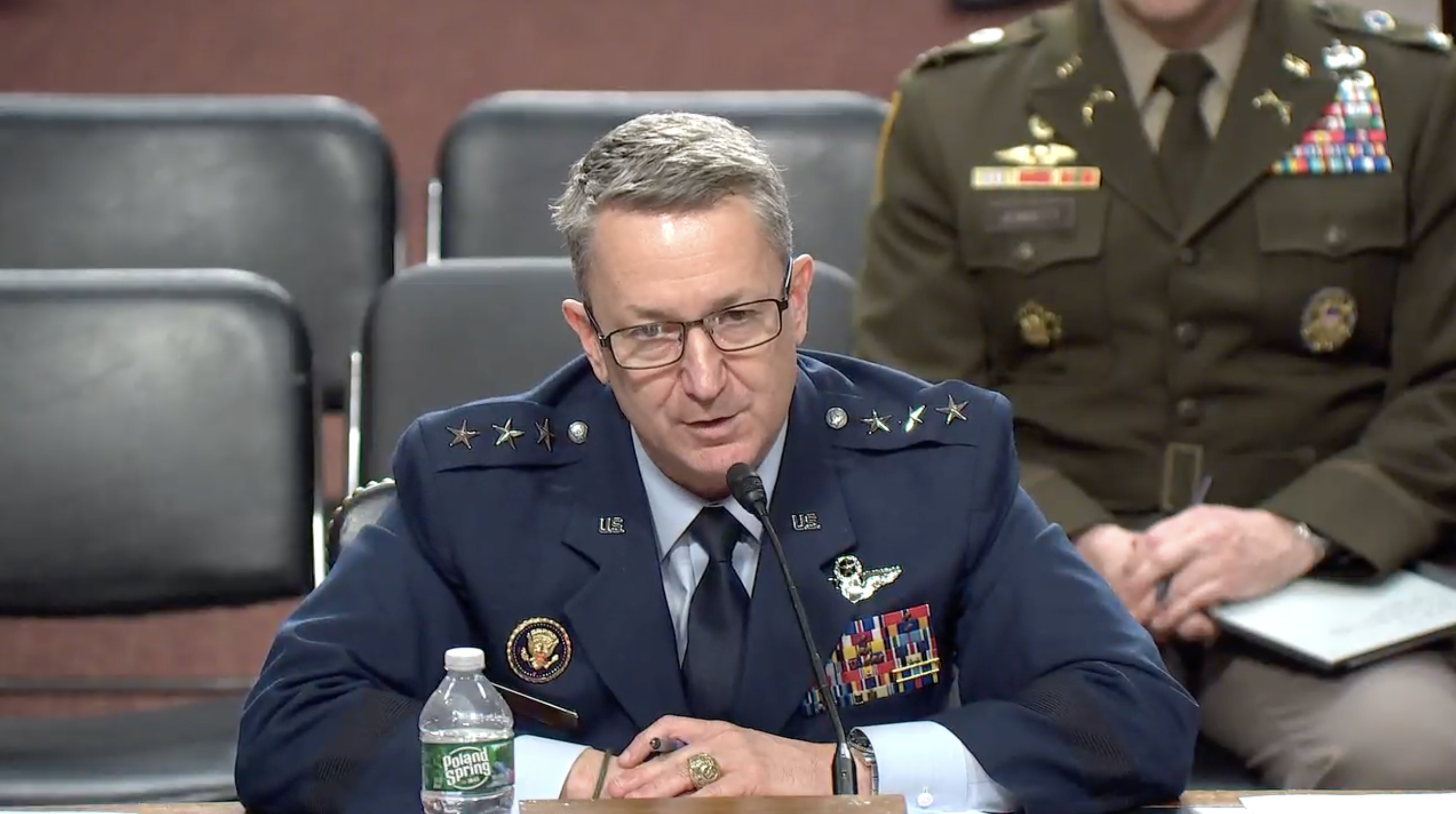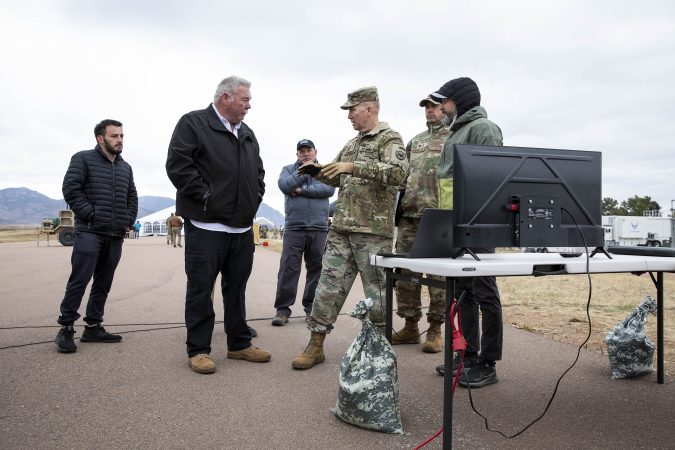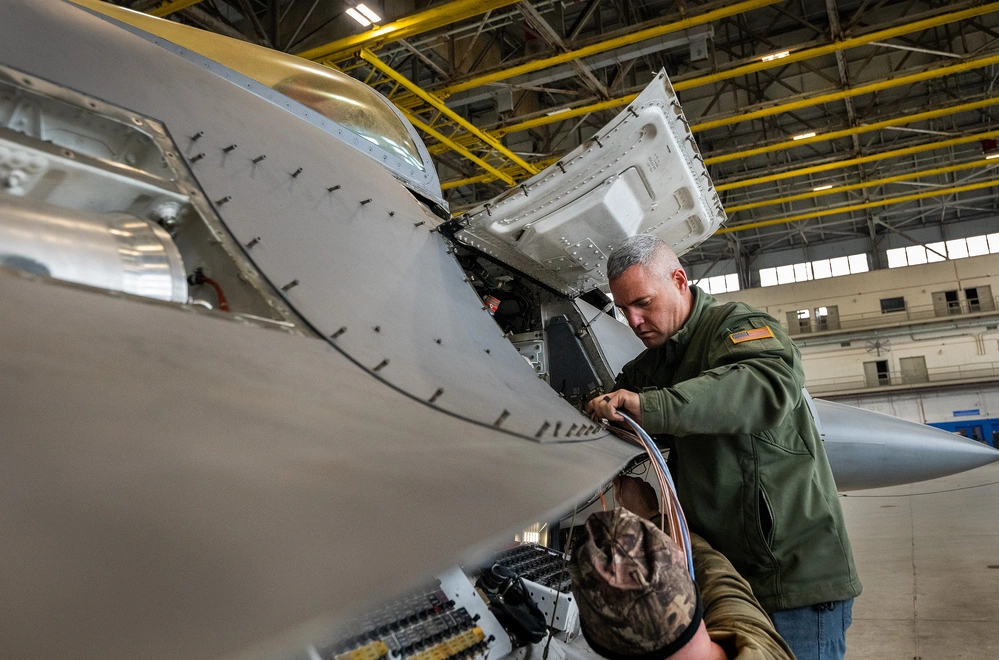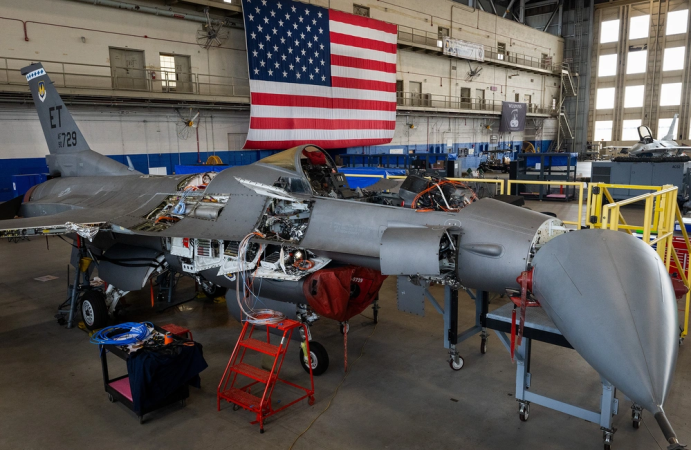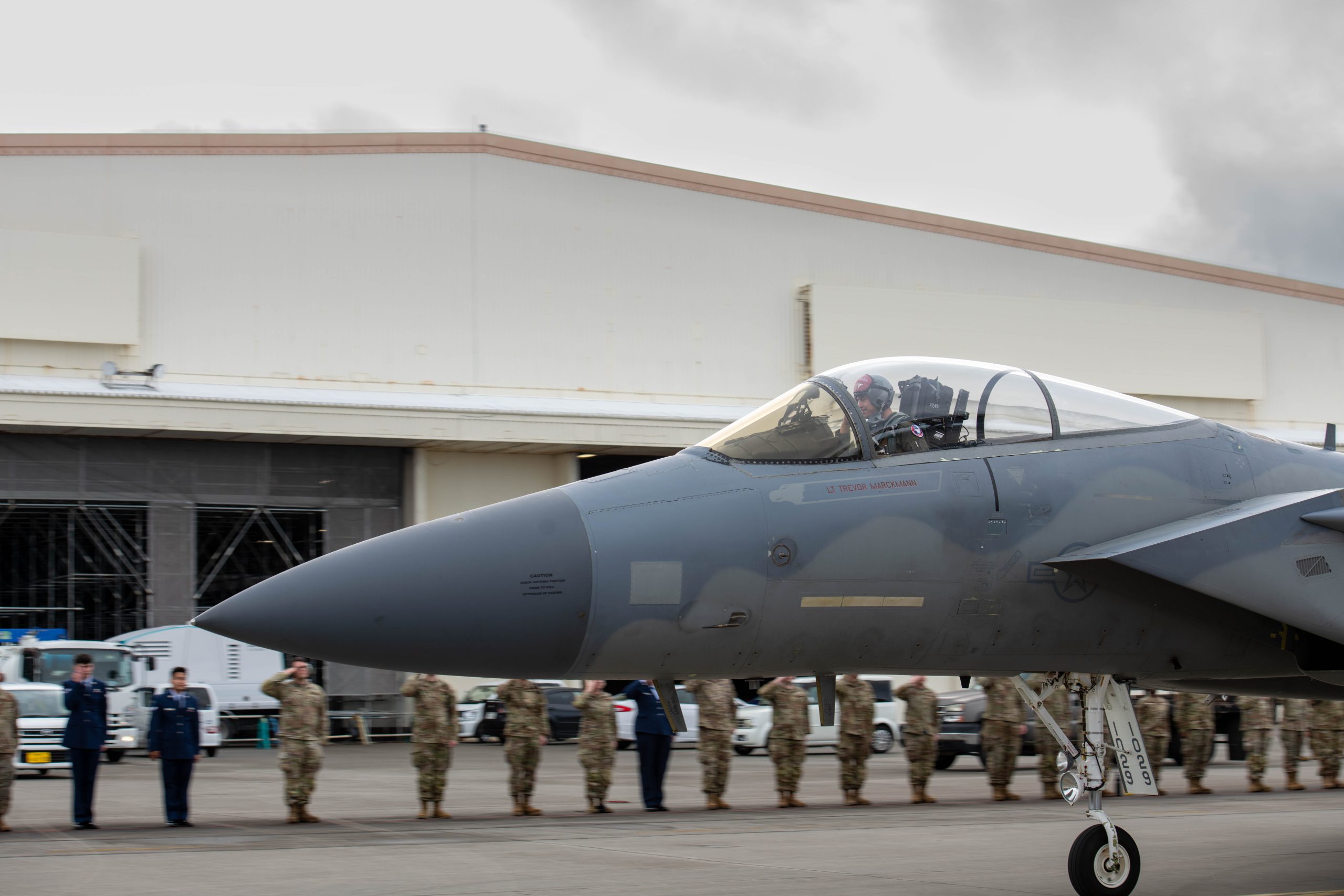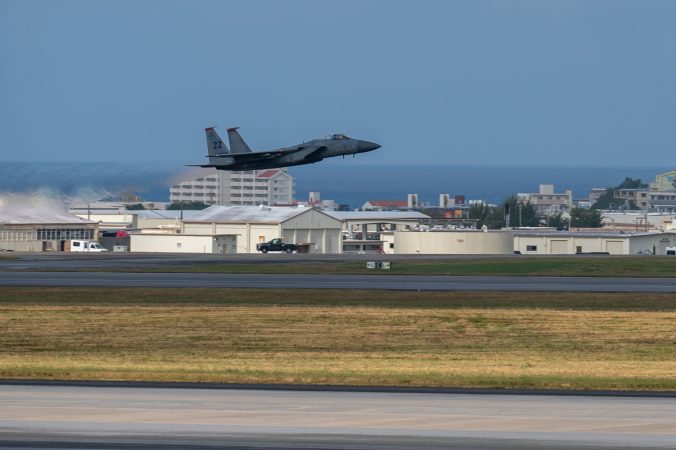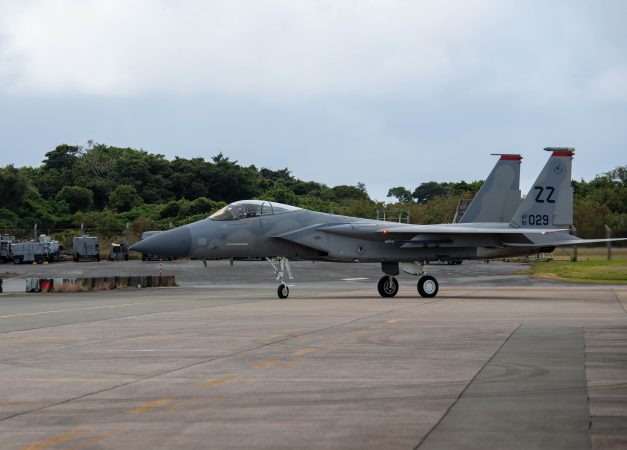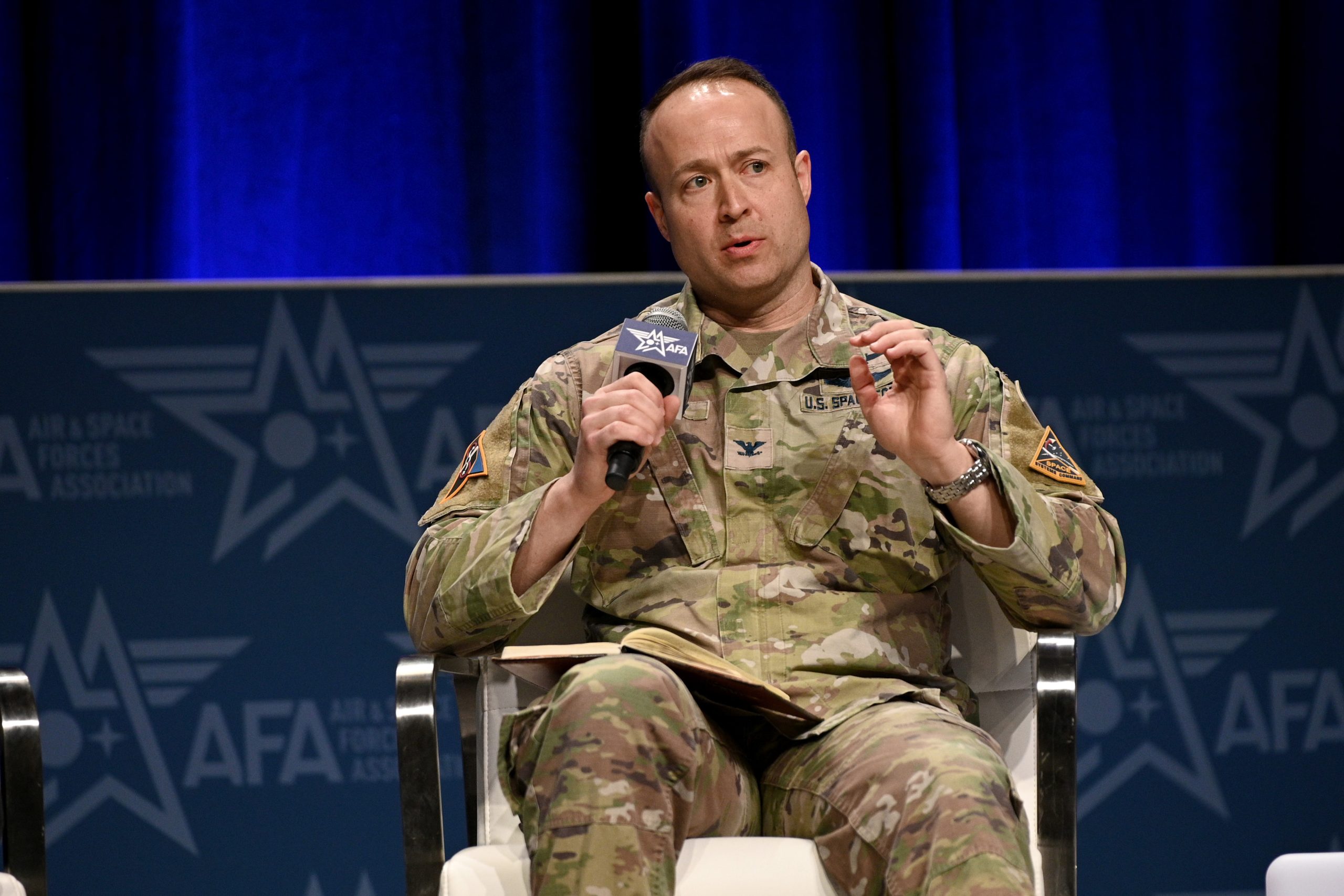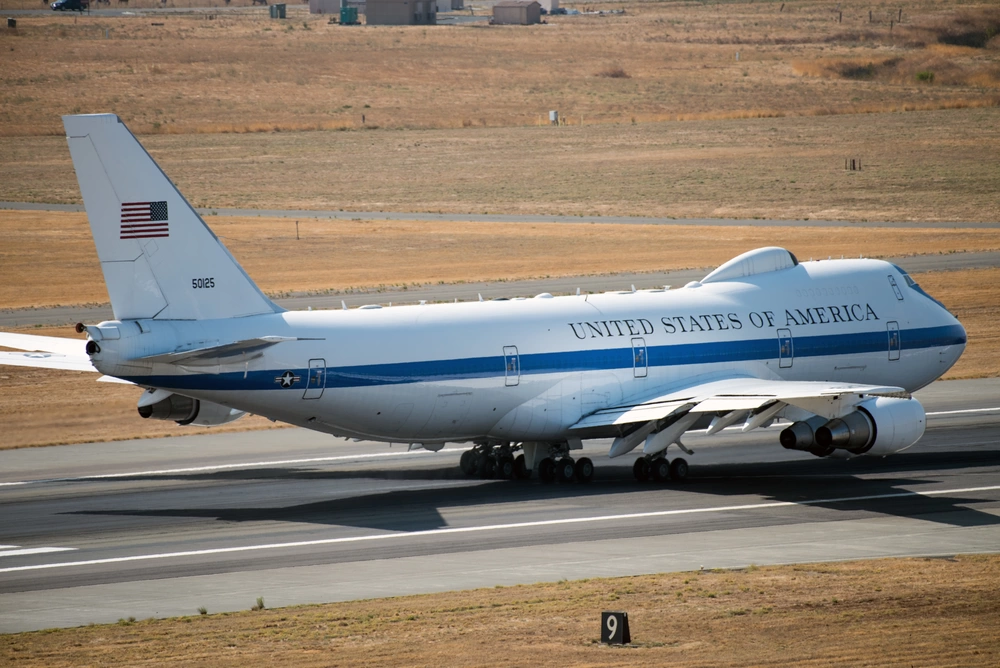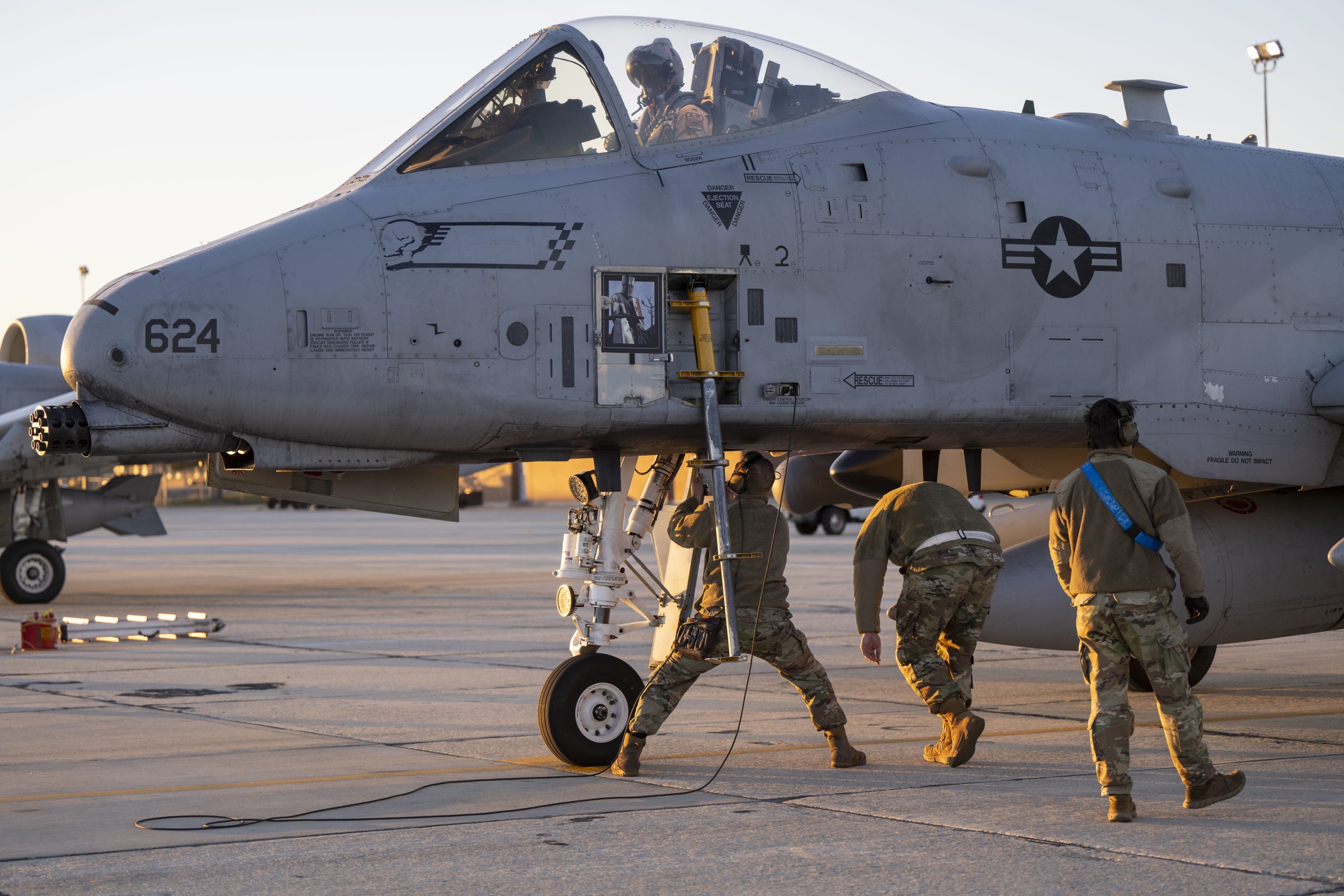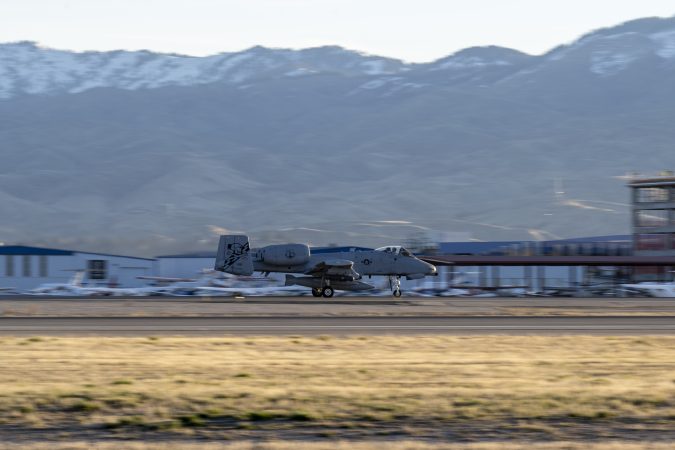Over 20 years of wars in “permissive environments,” the electronic warfare skills of the U.S. military have atrophied, requiring a new emphasis on EW training and new investment in simulation and training ranges, the prospective Chairman of the Joint Chiefs of Staff told lawmakers.
Among nearly 300 written questions Lt. Gen. Dan Caine answered for the Senate Armed Services Committee ahead of his April 1 confirmation hearing, he touched on the state of the Pentagon’s EW enterprise, saying several American electronic capabilities writ large are not adequately protected from electronic attack, and simulation capabilities are poor and in need of substantial upgrade.
“Against the most advanced adversaries, the joint force would likely face challenges protecting itself from electromagnetic attack,” Caine said in the written testimony. During the wars in Afghanistan and Iraq, when U.S. forces were not challenged by a peer, “the Joint Force has lost some muscle memory defending against electromagnetic attack,” Caine wrote. “Operations within this spectrum have changed significantly, while the most advanced adversaries have done their best to rapidly evolve.” He said that if he is confirmed, he’s committed to ensuring that the Pentagon “continues to invest in training and additional capabilities in the electromagnetic spectrum.”
If confirmed, Caine would succeed Gen. Charles Q. Brown Jr., who used almost exactly the same “loss of muscle memory” comment in his July 2023 confirmation hearing to describe the state of U.S. military electromagnetic warfare capabilities.
In January 2021—when he was Chief of Staff of the Air Force—Brown pledged to refresh the EW and electromagnetic spectrum operations enterprise in the service, saying that the service had been “asleep at the wheel” in this area because of a lack of a peer competitor during the Global War on Terror.
Soon after, the Air Force stood up the its first ever spectrum warfare wing, the 350th Spectrum Warfare Wing. Underneath it, the service has established the 850th Spectrum Warfare Group and the 388th and 563rd Electronic Warfare Squadrons The various units assess Air Force spectrum warfare capabilities and develop tactics and techniques for combat in the EMS domain.
As to EW ranges, their “current state … is inadequate,” Caine said.
“Despite some investments, these ranges have not kept pace with current technology or the threat environments in which we expect to fight,” Caine added. “These ranges often fail to provide the necessary fidelity, capacity, and complexity required to prepare forces for modern electromagnetic warfare threats.”
While the Pentagon has said that simulation can substitute for live-range electromagnetic warfare exercises in certain circumstances—especially when it doesn’t want to reveal to potential observers what it is doing—Caine said that even these simulators are “insufficient.”
“Although facilities like the Air Force Electronic Warfare Evaluation Simulator (AFEWES) and the Joint Simulation Environment (JSE) exist, they are not fully integrated with other systems and lack sufficient capacity to fully develop new joint electromagnetic warfare concepts,” he said. “These gaps hamper the Joint Force’s ability to experiment with and refine concepts in this area, leaving us vulnerable to emerging threats.”
The Air Force has EW training ranges at Eglin Air Force Base, Fla.—where the 350th SWW is headquartered—as well as one in Idaho, three in Nevada, two in South Carolina, one in Texas and one in Utah. Snyder Electronic Warfare Range, near Dyess Air Force Base, Texas, is used by all the services. The Nevada Test and Training Range is used during large-scale Red Flag exercises. Edwards Air Force Base, Calif., has a Digital Test and Training Range and is integrated with the JSE.
